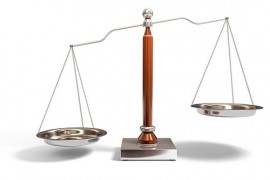Latest Newswatch report: Today ignored UK Withdrawal from the EU, but gave multiple airings for those who want stronger EU ties.
The latest News-watch report shows that Today went out of its way to give those who were opposed to change in Britain’s relationship with the EU – including Deputy Prime Minister Nick Clegg – multiple platforms in which they had clear time and space to advance arguments in favour of their views, including the hotly disputed claim by Europhiles that 3.5m jobs would be lost if the relationship with the EU was fundamentally changed. This assertion went unchallenged by the Today presenter.
BBC Trustees reject Newsnight EU bias complaint
Is the BBC properly balanced and impartial in its reporting of complex issues such as the EU, immigration and climate change?
Hot off the Press: Latest Newswatch EU Survey Covering Summer 2013
BBC ‘Enmeshed in Comic Relief’
A BBC Panorama investigation into Comic Relief has shown that the charity invests in tobacco, arms and alcohol, despite its ‘holier-than-thou’ ethical claims and telling the public that every penny it raises goes to the developing world.
The real issue here is not solely Comic Relief’s hypocritical investment policy, but rather the close relationship between the charity and the BBC – something which Panorama or subsequent coverage of its investigation has failed to spotlight or explain.
Every year or so, the corporation clears its schedules for Comic Relief. This is an extraordinary facility and it has led to the charity raising the staggering sum of £909m. It has become so wealthy that it can afford salaries of £130,000+ for senior staff.
The BBC supports Comic Relief not because it is an exceptional charity doing outstanding work, but rather because the corporation regards providing aid to developing countries as the ultimate good. Another reason is that Comic Relief is a cheerleader for schemes that they claim tackle ‘climate change’ – something which the BBC also intrinsically supports, in general reporting, at Trustee level and especially through the BBC World Service, which for decades has staunchly championed both overseas aid and measures to
tackle the perceived threat of ‘climate change’.
The BBC has worked assiduously behind the scenes over the years to support Comic Relief. An example of the cross-fertilisation and BBC cheerleading is that Lord Hastings, a former head of Corporate Social Responsibility at the BBC, was active for almost a decade in promoting the climate change agenda while sitting on the board of Comic Relief.
This rat’s nests cross-over continues to this day. On screen, the BBC doggedly – with clear disregard for normal rules of impartiality – pursues its climate change agenda; at the same time Tim Davie, who was acting Director General of the BBC before Lord Hall assumed the role in the summer, and is now chief executive of BBC Worldwide, has recently been appointed chair of the Comic Relief Trustees. One of his colleagues is another veteran BBC senior executive, the former Controller of BBC1 Peter Salmon.
Photo by KaiChanVong 
Four out of ten ‘think BBC biased’, says survey
News-watch Survey – Winter 2012
This survey investigates the Today programme’s coverage of EU news and current affairs over a thirteen-week interval between Monday 17 September and Saturday 15 December 2012. Newswatch monitored and analysed all 78 editions of the Today programme broadcast during this interval.



